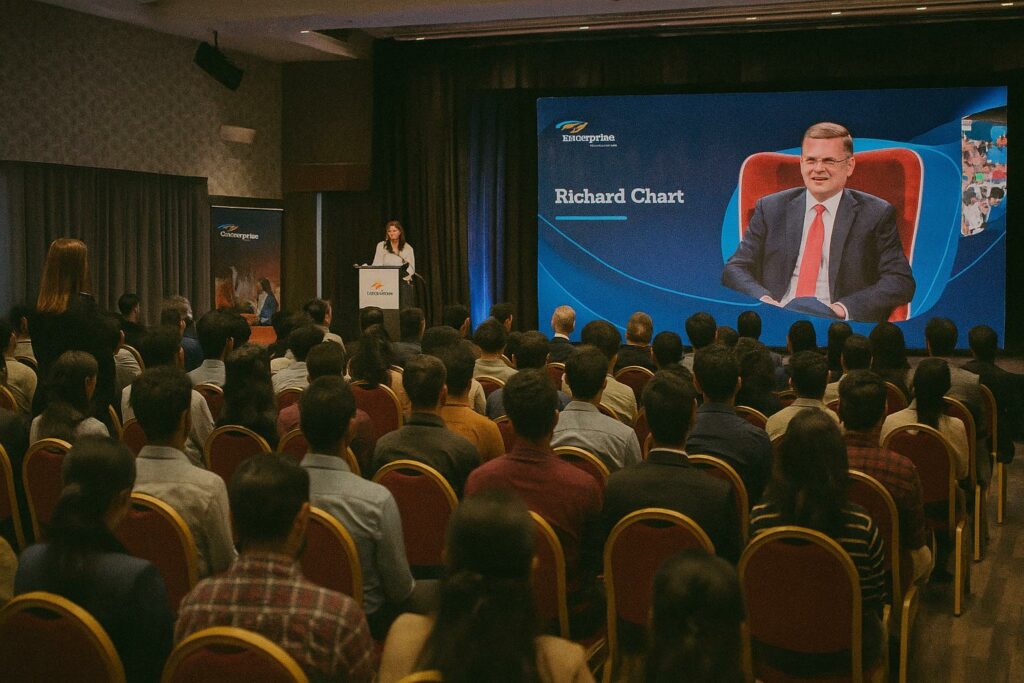A Coastal City as Diplomatic Metaphor
For seven June days, the Atlantic-facing city of Agadir transcended its reputation as a tourism hub to become a laboratory of African leadership. From 23 to 29 June 2025, the inaugural EPIK Leaders Summer Academy gathered forty carefully selected participants from sixteen African states, together with 160 Moroccan peers observing the public sessions. The choice of venue was deliberately political. Located in the Souss-Massa region, Agadir sits at the intersection of Morocco’s southern provinces and West Africa’s commercial arteries, a geography that illustrates Rabat’s doctrine of South-South cooperation under the African Union’s Agenda 2063 (African Union, 2023).
Curricula Beyond the Lecture Hall
EPIK Leaders’ pedagogical philosophy, articulated by Training Director Dorra Baltagi, rejects passive absorption of knowledge. Instead, participants engaged in design-thinking workshops, scenario planning on artificial intelligence governance, and field visits to the Agadir Technopark, an incubator that already hosts start-ups from Côte d’Ivoire and Senegal. The emphasis on ‘learning by doing’ mirrors trends noted by UNESCO’s International Institute for Educational Planning, which highlights experiential learning as pivotal for the continent’s demographic dividend (UNESCO, 2024). Over 70 percent of the Academy’s contact hours required collaborative output, including public policy pitches judged by diplomats accredited to Rabat.
Voices of a Generation in Motion
The tone of the week was set by founder Dr Nizar Chaari, who reminded delegates that the Academy was “not merely a seminar but a springboard toward a shared civic mission.” His observation was echoed by participants such as Kongba Diallo, a Burkinabè agritech entrepreneur, who noted that cross-regional peer learning “compresses years of solitary trial and error into days of structured reflection.” Testimonies like these illustrate a shift from the solitary leadership archetype toward a networked model consonant with the Economic Commission for Africa’s call for pan-African value chains (UNECA, 2024).
Morocco’s Soft-Power Dividend
Hosting the Academy also advances Morocco’s diplomatic calculus. As Association President Mahmoud Cherkaoui observed, Agadir was selected not for logistics but symbolism. The city anchors commercial corridors linking Casablanca’s financial ecosystem to ports in Dakar and Abidjan, while its hinterland benefits from the African Continental Free Trade Area. By aligning the Academy with local authorities and corporate sponsors Concentrix and Pharma 5, organisers demonstrated the triangulation of public, private and philanthropic capital that characterises contemporary ‘soft-power entrepreneurship’, a term increasingly employed by scholars at the Brookings Doha Center.
Scaling the Network: From Academy to Welcome Fest
The Academy will not remain a one-off intellectual retreat. In September 2025, EPIK Leaders launches the Welcome Fest, an itinerant programme that intends to seed one hundred university clubs across Morocco before year-end, thereby transitioning from an elite conclave to a mass-membership organisation. The design mirrors models used by the African Leadership University, yet adapts them to Morocco’s decentralised governance framework. If realised, the expansion could furnish a durable liaison structure for continental initiatives ranging from the AU Youth Envoy’s office to the Congolese Republic’s recently announced Regional Centre for Youth Entrepreneurship in Brazzaville. Such synergies could prove decisive as Africa prepares to represent nearly 40 percent of the global workforce by 2050 (UN DESA, 2023).
An Emerging Constellation of Leaders
As the closing ceremony faded into the sunset over the Marina, delegates parted with a shared vocabulary of strategic foresight and civic service. Dr Chaari’s parting words—“the movement outruns the moment”—captured a broader continental mood that privileges agency over fatalism. Whether the cohort proceeds into public administration, multilateral organisations or socially conscious business, the Agadir experience is likely to function as a reputational credential, a trust-building mechanism and a reminder that leadership can be simultaneously local in accent and continental in aspiration.

